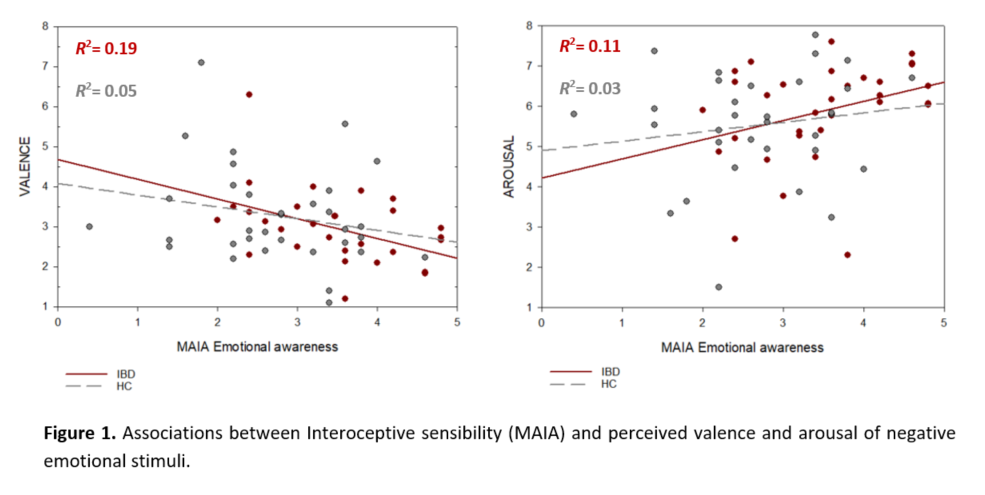P075 Multidimensional assessment of interoceptive abilities, emotion processing and the role of early life stress in Inflammatory Bowel Disease
Atanasova, K.(1);Lotter, T.(2);Reindl, W.(2);Lis, S.(1);
(1)Institute of Psychiatric and Psychosomatic Psychotherapy- Central Institute of Mental Health- Mannheim, Medical Faculty Mannheim- Heidelberg University- Germany, Mannheim, Germany;(2)Medical Faculty Mannheim- Heidelberg University- Germany, Department of Medicine II, Mannheim, Germany
Background
Perception of internal bodily sensations includes three dissociable processes: interoceptive accuracy, interoceptive sensibility, and interoceptive awareness. Interoception plays a crucial role in emotional processing and alterations of these processes have been already observed in gastrointestinal disorders. Although impairments in interoception may contribute to the burden of disease in IBD, no study has investigated interoceptive processing in IBD as a multidimensional concept. The aim of the current study was to investigate the associations between the different dimensions of interoception and emotional processing in IBD, while taking childhood traumatization into account.
Methods
We recruited 35 remitted IBD patients and 35 healthy control participants (HC) matched for age, sex and education. Interoception was assessed as a multidimensional construct using the Heartbeat tracking task and the Multidimensional Assessment of Interoceptive Awareness questionnaire. Emotional processing was measured using an experimental task, where participants were asked to rate the valence and arousal when presented with affective visual stimuli. Childhood traumatization was assessed using the Childhood Trauma Questionnaire.
Results
IBD patients reported greater awareness of the connection between bodily sensations and emotional states and showed a stronger tendency to use distraction from unpleasant sensations compared with HC. Our findings suggest that emotional processing in IBD is related to interoceptive sensibility and not to the objective interoceptive accuracy. The association between interoception and emotional processing was modulated by the severity of childhood traumatization in both groups.
Conclusion
This is the first study showing that IBD patients did not differ in their ability to detect visceral signals but in their subjective perception of these. Psychotherapeutic interventions in IBD might profit from taking the interplay between emotion processing, interoception and childhood trauma into account.




